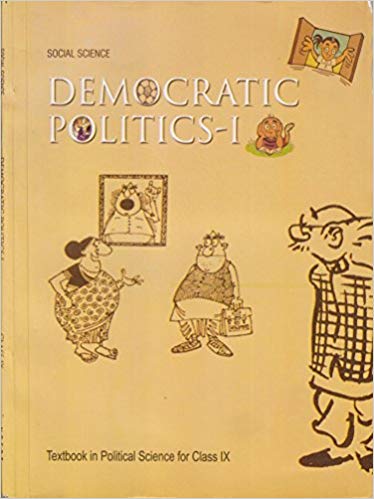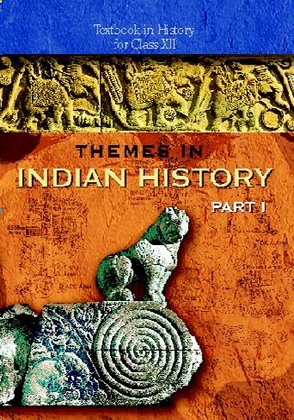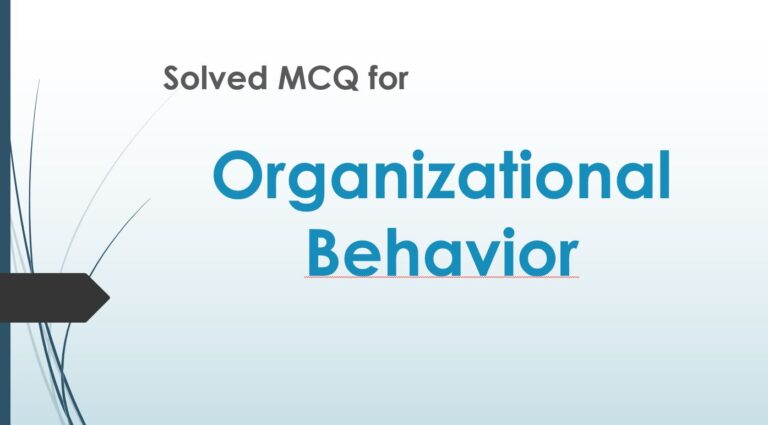Class 9 - Social Science : Democratic Politics I
Chapter 3 - Constitutional Design

Top Block 1
Page 53
Question : 1. Here are some false statements. Identify the mistake in each case and rewrite these correctly based on what you have read in this chapter.
(a) Leaders of the freedom movement had an open mind about whether the country should be democratic or not after independence.
(b) Members of the Constituent Assembly of India held the same views on all provisions of the Constitution.
(c) A country that has a constitution must be a democracy.
(d) Constitution cannot be amended because it is the supreme law of a country.
Answer :
(a) Leaders of the freedom movement had an open mind about the country being democratic after independence.
(b) Members of the Constituent Assembly of India had different ideas on all provisions of the Constitution. They arrived at a solution only after long discussions and debates and a consensus was reached.
(c) It is not necessary that a country having a constitution must be a democracy. The constitution of a country can even make provisions for dictatorship or monarchy. Examples: Soviet Union and Pakistan.
(d) A Constitution can be amended to keep up with the changes in aspirations of the society. It can also be changed keeping in mind the social, political and economic conditions of the country.
Question : 2. Which of these was the most salient underlying conflict in the making of a democratic constitution in South Africa?
(a) Between South Africa and its neighbours
(b) Between men and women
(c) Between the white majority and the black minority
(d) Between the coloured minority and the black majority
Answer :
(c) Between the white majority and the black minority
Question : 3. Which of these is a provision that a democratic constitution does not have?
(a) Powers of the head of the state
(b) Name of the head of the state
(c) Powers of the legislature
(d) Name of the country
Answer :
(b) Name of the head of the state
Question : 4. Match the following leaders with their roles in the making of the Constitution:
| (a) Motilal Nehru | (i) President of the Constituent Assembly |
| (b) Β.R. Ambedkar | (ii) Member of the Constituent Assembly |
| (c) Rajendra Prasad | (iii) Chairman of the Drafting Committee |
| (d) Sarojini Naidu | (iv) Prepared a Constitution for India in 1928 |
Answer :
| (a) Motilal Nehru | (iv) Prepared a Constitution for India in 1928 |
| (b) Β.R. Ambedkar | (iii) Chairman of the Drafting Committee |
| (c) Rajendra Prasad | (i) President of the Constituent Assembly |
| (d) Sarojini Naidu | (ii) Member of the Constituent Assembly |
Question : 5. Read again the extracts from Nehru’s speech ‘Tryst with Destiny’ and answer the following:
(a) Why did Nehru use the expression “not wholly or in full measure” in the first sentence?
(b) What pledge did he want the makers of the Indian Constitution to take?
(c) “The ambition of the greatest man of our generation has been to wipe every tear from every eye”. Who was he referring to?
Answer :
(a) The expression ‘not wholly or in full measure’ in the first sentence was used by Nehru because he thought that the task they had undertaken was incomplete and it wasn’t possible to fulfill the pledges all at once but would be gradually fulfilled.
(b) The pledge that he wanted the makers of the Indian Constitution to take was to dedicate their lives to the service of India, Indians and humanity at large.
(c) He was referring to Mahatma Gandhi.
Question : 6. Here are some of the guiding values of the Constitution and their meaning. Rewrite them by matching them correctly.
| (a) Sovereign | (i) Government will not favour any religion. |
| (b) Republic | (ii) People have the supreme right to make decisions. |
| (c) Fraternity | (iii) Head of the state is an elected person. |
| (d) Secular | (iv) People should live like brothers and sisters. |
Answer :
| (a) Sovereign | (ii) People have the supreme right to make decisions. |
| (b) Republic | (iii) Head of the state is an elected person. |
| (c) Fraternity | (iv) People should live like brothers and sisters. |
| (d) Secular | (i) Government will not favour any religion. |
Page 54
Question : 7. A friend from Nepal has written you a letter describing the political exercises situation there. Many political parties are opposing the rule of the king. Some of them say that the existing constitution given by the monarch can be amended to allow more powers to elected representatives. Others are demanding a new Constituent Assembly to write a republican constitution. Reply to your friend giving your opinions on the subject.
Answer :
Dear Yam,
I read your letter. These are exciting times indeed for you! My country has been independent for almost sixty years, and we have already gone through the whole process of establishment of democracy. Fortunately, it has survived on this soil as well. I just hope the same happens in Nepal.
I find myself hoping that the demand for a new Constituent Assembly would take root in Nepal. A republican constitution has its benefits you know! In countries like yours and mine, there is already too much wastage in terms of government expenditure. Unfortunately, such is the reality of our national culture. In addition, if Nepal has a Constitutional Monarchy, a lot of money would have to be spent on maintaining the high standards of living for the royalty. UK has a Constitutional monarchy, but it can also afford it–centuries and centuries of colonial exploitation of other countries has its benefits! However, in my opinion, for countries like India and Nepal, a Republican government is best suited.
By all means, the Constitution offered by your king can hardly be called democratic! It hardly gives any powers to your Parliament or the civilian government or so I’ve heard. Nevertheless, whatever I might think as a foreigner, the people of Nepal will be the best judge of your country’s political future. Let’s see what happens.
P.S. – I have heard the Maoists are making some inroads in the rural heartland of Nepal? I don’t personally support violence of any kind and am a believer in democracy. However, the Maoists intrigue me to no limit. What is their attitude towards India? What do they think about the Chinese? Do let me know what you think.
Your Friend,
XVZ
Question : 8. Here are different opinions about what made India a democracy. How much importance would you give to each of these factors?
(a) Democracy in India is a gift of the British rulers. We received training to work with representative legislative institutions under the British rule.
(b) Freedom Struggle challenged the colonial exploitation and denial of different freedoms to Indians. Free India could not be anything but democratic.
(c) We were lucky to have leaders who had democratic convictions. The denial of democracy in several other newly independent countries shows the important role of these leaders.
Answer :
(a) Though I would acknowledge many good things were learnt from the British rulers and democracy being one of them,I wouldn’t say that democracy was a gift given by them. Indians had to struggle a lot and make many sacrifices to attain freedom from the British rule. These circumstances helped people to gain the experience and training in working of the legislative institutions.
(b) Yes, Free India could not be anything but democratic because the people had already suffered a lot under the British rule. This made them realise that for people to have a say in ruling the country, it was necessary to make India a democratic country.
(c) It is indeed true that we were lucky to have leaders who had deep democratic values. It is because of these ideals that India’s freedom struggle can be considered as the only example of a bloodless freedom struggle in the contemporary history. Therefore, absence of such ideals has made many countries undemocratic.
Question : 9. Read the following extract from a conduct book for ‘married women’, published in 1912. ‘God has made the female species delicate and fragile both physically and emotionally, pitiably incapable of self-defence. They are destined thus by God to remain in male protection – of father, husband and son – all their lives. Women should, therefore, not despair, but feel obliged that they can dedicate themselves to the service of men’. Do you think the values expressed in this para reflected the values underlying our constitution? Or does this go against the constitutional values?
Answer :
The given paragraph does not reflect the underlying value in our Constitution. It refers to the patriarchal views and endorses the thought of inequality in genders.
It goes against the constitutional values because in the paragraph women are shown as inferior, unequal as weak and fragile who should serve men. However, the Constitution has provided equal rights to women. They enjoy the right to vote, can take up any job and are paid equal wages for the same work.
Question : 10. Read the following statements about a constitution. Give reasons why each of these is true or not true.
(a) The authority of the rules of the constitution is the same as that of any other law.
(b) Constitution lays down how different organs of the government will be formed.
(c) Rights of citizens and limits on the power of the government are laid down in the constitution.
(d) A constitution is about institutions, not about values.
Answer :
(a) Not true. An ordinary law is passed by the Parliament and can be changed by it on its own will. On the other hand, the rules of the Constitution have greater authority and the Parliament has to abide by them. For amending these rules, a special procedure has to be adopted.
(b) True. The Constitution has laid down the framework for the government formation. It has put in place the structure, power and functions of the three organs of the government, i.e. executive, legislative and judiciary.
(c) True. The rights of the citizens are laid down in the Constitution as fundamental rights, which are enforceable by law. The powers and functions of the government are divided into the executive, legislative and judiciary. It is done to keep each organ under check by the other organs to ensure power functioning of the government.
(d) Not True. The Constitution is the supreme law of the country. It lays down the composition powers and functions of the various institutions of government. The Constitution is guided by values which are found in the form of Preamble. Principles and values such as equality, liberty, fraternity, brotherhood, secularism and justice are included in the Preamble of the Constitution.
Mddle block 1
Additional Questions
Question : 1 Write a short note on Nelson Mandela.
Answer :
Nelson Mandela fought against white domination in South Africa. He cherished the ideal of a democratic and free society in which all persons live together in harmony and with equal opportunities.
The South African government tried him for treason and imprisoned him for daring to oppose the apartheid regime in his country. Mandela spent 28 years in South Africa’s most dreaded prison, Robben Island.
After 28 years of imprisonment, Nelson Mandela was released. On 26th April 1994, the new national flag of the Republic of South Africa was unfurled marking the newly born democracy in the world. Nelson Mandela was made the first President of this new democracy.
Question : 2 What is a Constitution?
Answer :
Unlike a monarchy, in a democracy the rulers are not free to do what they like. Certain basic rules have to be followed by the citizens and the government. These rules put together are called the Constitution. As the supreme law of the country, the constitution determines the rights of citizens, the powers of the government and how the government should function.
Question : 3 What was basis of the apartheid regime in South Africa?
Answer :
The apartheid regime differentiated people on the basis of their skin colour. The native people of South Africa who were black skinned were called ‘blacks’. They made up about three-fourth of the population. People of mixed races who were called ‘coloured’. The White Europeans were called ‘Whites’. The white rulers treated all non-whites as inferior.
Question : 4 How were the non-whites discriminated?
Answer :
The non-whites did not have any voting rights. The apartheid regime was particularly oppressive for the ‘blacks’ and the ‘coloured’. They were forbidden from living in white areas. They could work in white areas only if they had a permit.
There were separate trains, buses, taxis, hotels, hospitals, schools and colleges, libraries, cinema halls, theatres, beaches, swimming pools and public toilets, for the whites and blacks. The blacks were not allowed into the Churches frequented by the whites. There were not allowed to form any association to represent their problems. This system of racial discrimination, unique to South Africa, was called Apartheid.
Question : 5 Which was the first organisation that led the first against Apartheid?
Answer :
The African National Congress (ANC) was the first organisation that led the struggle against Apartheid.
Question : 6 Why is South Africa called a ‘rainbow nation’ today?
Answer :
There is no social or any discrimination based on skin colour in free south Africa, today. Blacks, whites and coloured people, men and women, live as free citizens, in total harmony. This is why they call South Africa a ‘rainbow nation’.
Question : 7 What was the situation at the time India achieved independence?
Answer :
At that time of independence, the people of India were emerging from the status of subjects to that of citizens. India and Pakistan were born through a partition on the basis of religious differences. This was a traumatic experience for the people of India and Pakistan. Lakhs of people were killed on both sides of the border in partition related violence. The British had left it to the rulers of the princely states to decide whether they wanted to merge with India or with Pakistan or remain independent. This created a lot of turmoil.
Question : 8 Write a short note on the first Constituent assembly.
Answer :
Elections to the first Constituent Assembly were held in July 1946. The elected members drafted the document called the Constitution. The Constituent Assembly held its first meeting in November 1946. Soon after the country was divided into India and Pakistan. The Constituent Assembly was also divided into the Constituent Assembly of India and that of Pakistan. The Indian Constituent assembly had 299 members. The Assembly adopted the Constitution on 26 November 1949. The constitution only came into effect on January 26, 1950. So Republic Day is celebrated on the 26th of January , every year.
Question : 9 How is the South African Constitution looked upon today?
Answer :
The South African constitution inspires democrats all over the world. South Africa was a State which was looked down upon by many during the Apartheid regime. Today the determination of the people of South Africa to work together, without bearing any grudges against the white regime in looked upon with great respect.
The South African Constitution sees people of all skin colours as equal. Men and women are treated equally.
Question : 10 What is a Preamble? Quote the Preamble of our constitution.
Answer :
A Preamble is an introductory statement in a constitution which states the reasons and guiding values of the constitution.
” We, the people of India having solemnly resolved to constitute India into SOVEREIGN SOCIALIST SECULAR DEMOCRATIC REPUBLIC and secure to all its citizens justice, social, economic and political.Liberty of thought, expression, belief, faith and worship. Equality of statue and of opportunity and to promote among them all fraternity, assuring the dignity of the individual and the unity and integrity of the nation, in our constitutional assembly, this 26th day of November.1949, do hereby adopt, enact and give to ourselves this constitution.”
Question : 11 Who constituted the Constituent assembly?
Answer :
The Assembly was dominated by the Indian National Congress, which led India’s freedom struggle. The Indian National Congress included a variety of political groups .these different groups had different opinions.
The Assembly also had many members who did not agree with the Congress. On the social platform, the Assembly was represented by members from different language groups, castes, classes, religions and occupations.
Question : 12 What is secularism?
Answer :
When a Government treats all religious beliefs and practices with equal respect it called a secular government. There is no official religion. Citizens have complete freedom to follow any religion.
Question : 13 Define ‘ Democratic Republic’.
Answer :
‘Democratic Republic’ is a form of government where people enjoy equal political rights, elect their rulers and hold them accountable. The government is run according to some basic rules. The head of the state is an elected person and not a hereditary ruler.
Question : 14 Write a brief note on the following personalities.
(a) Jawaharlal Nehru
(b) Sarojini Naidu
(c) Bhimrao Ramji Ambedkar
Answer :
(a) Jawaharlal Nehru was born in the year 1889 and died in the year 1964. He was born in the state of Uttar Pradesh. He was a lawyer by profession. He was the Prime Minister of the interim government. As a Congress leader he advocated socialism, democracy and anti-imperialism. Later he was appointed the First Prime Minister of India.
(b) Sarojini Naidu was born in the year 1879 and died in the year 1949. She was born in Andhra Pradesh. She was a poet, writer and political activist. She was among the foremost women leaders in the Congress. Later she was appointed the Governor of Uttar Pradesh.
(c) Bhimrao Ramji Ambedkar was born in the year 1891 and died in the year 1956. He was born in Maharashtra. He was the Chairman of the Drafting Committee of the Constitution. He was a Social revolutionary thinker and agitated against caste divisions and caste based inequalities. He was made the Law minister in the first cabinet of post independence India.
Question : 15 Was Mahatma Gandhi a member of the Constituent Assembly?
Answer :
No, Mahatma Gandhi was not a member of the Constituent Assembly.



